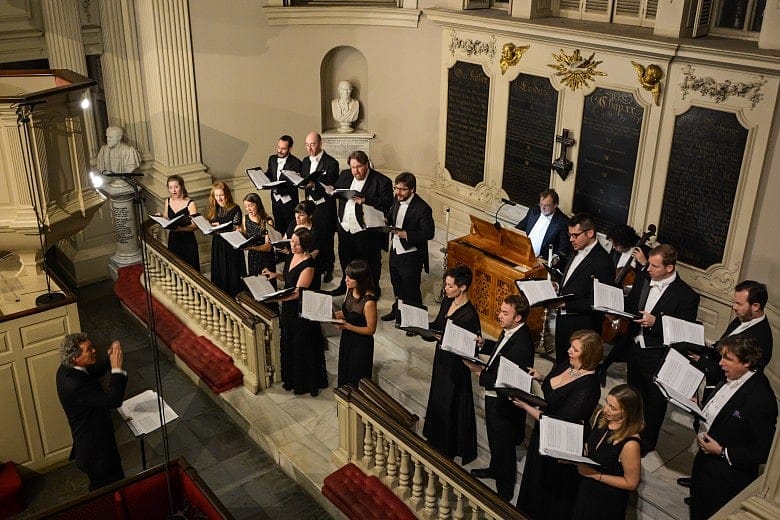History repeats itself at H+H bicentennial concert

With flair and fanfare, Boston's Handel & Haydn Society celebrated its bicentennial on November 21st with a historic concert at King's Chapel. The program featured the same music from the group's inaugural performance at the church on Christmas Day in 1815. In a press review of that first concert, the author declared the chorus' peerless "superiority." Two hundred years later, this commentator is pleased to concur.
In her introductory remarks, Rev. Joy Fallon observed that King's Chapel has changed little since its founding in 1686. She also noted that it was the first church in puritan Boston to "have the audacity to celebrate Christmas." Since the Handel & Haydn Society was founded to introduce Bostonians to the finest European music, their first concert must have been a startling revelation for early 19th century Christmas churchgoers. As the music filled the hall, I caught sight of an American flag swaying gracefully outside the Palladian window above the chancel. Surely, the group's founders would be gratified by the outcome of their experiment of introducing beautiful music from the old world to the new, emergent city.

